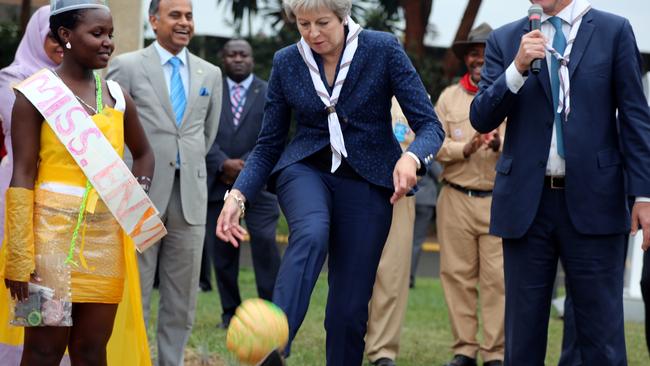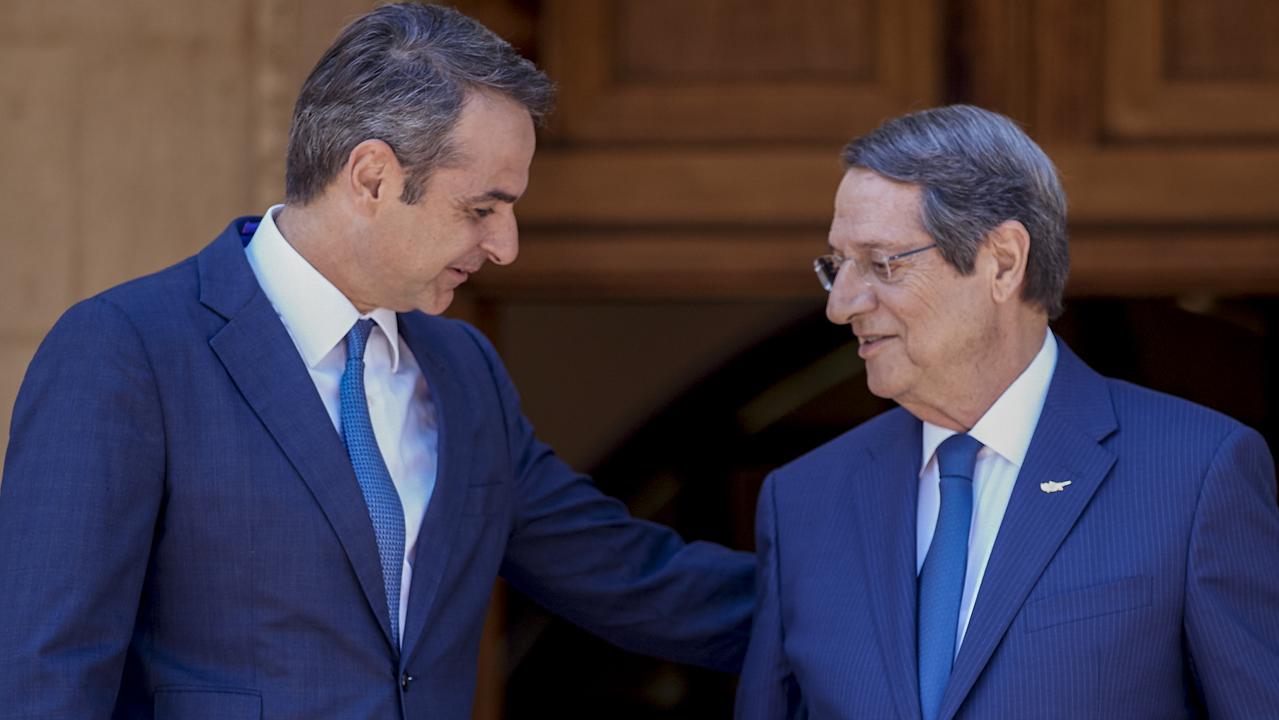Brexit gives Britain a chance to steal march on China in Africa
China is winning the new scramble for Africa. Brexit could change that.

The tone of last week’s tour, however, was different: a pitch for how Britain can make new alliances. This country will soon have the freedom to do so — no longer bound by its role as the most reluctant member of a 28-nation bloc. The opportunity is to treat African nations as partners and equals, not as risks or charity cases.
The EU’s protectionist policies that did so much to worsen poverty — placing tariffs on basic farm produce — can be replaced by a new era of increased trade and economic development. Food production is the one industry where African countries tend to have a comparative advantage over European producers. Yet scared of competition, the EU for many years kept much African-produced food out of Europe through quotas and punitive tariffs. There has been some liberalisation in recent years, but not enough.
Europe’s Common Agricultural Policy means that Britain has never been able to relax trading restraints: instead, the focus has been on foreign aid handouts. There has always been a smack of neocolonialism in this approach: seeing Africans as in need of saving. The EU now allows certain processed foods such as cocoa and roasted coffee to be imported from the least developed countries tariff-free. In treating free trade as a humanitarian gesture, however, the EU merely emphasises its instinctive protectionism.
May could have gone further. She could have listed more ways in which Brexit Britain would be a better trading partner. For example, the EU’s prohibitive rules on GM crops have restricted their development in Africa while EU farming subsidies continue to distort the market against African producers. There is no chance at all that African farmers would be allowed to displace the business of European ones, since EU tariff concessions apply only to countries that qualify under certain poverty criteria. If ever those countries become better off, the trade barriers would come down again. Britain, however, can now say it will trade freely and not penalise success.
Climate change-related aid projects are another case in point, often seeming to be designed to keep Africans in a state of noble poverty, leading lives of environmental purity, so as to allow European countries to carry on polluting for a little longer.
One British aid project, Green Africa Power, spent £9.4 million trying to bring solar and hydro power to nine million Africans. Yet in five years of operation, it failed to provide a single gigawatt of power and led the late UN secretary general Kofi Annan to stand up for the right of African countries to use fossil fuels just as Western nations do, at least in the short term, as they try to accelerate economic growth.
China has adopted a very different line. While Europe cannot stop thinking in terms of aid, China invests in Africa on the same basis that it would anywhere else in the world, for the mutual benefit of both sides. Chinese investment in Africa has nearly trebled since 2010, according to the UN Conference on Trade and Development, from £13 billion to £35bn. Chinese money is going on projects that African countries have themselves chosen as priorities, such as the Mombasa-to-Nairobi railway and other infrastructure, projects that genuinely create wealth rather than offering Africans a slightly better class of poverty. In some cases it has meant deals that we might find unpalatable, such as with Robert Mugabe’s Zimbabwe before his overthrow. Yet the result is that Chinese influence in Africa grows and grows, while that of the West diminishes. Africans, according to the Pew Research Centre, now have a more positive view of China than people anywhere else in the world.
May is not the only European government minister on trade manoeuvres in Africa. Germany’s Development Minister, Gerd Müller, toured seven countries the week before— but he cannot plausibly offer any improvement in the trading system. The EU has been talking about doing a deal with Africa for years but it has been hampered by its refusal to move on agriculture, and by ever more prescriptive product standards, which are invariably designed to help European producers. African countries are fed up with one-sided discussions that have led to an increase in European exports to Africa but decreasing African exports to Europe.
Brexit offers Britain the chance to think again about our trading relationship with Africa, turning it into one which encourages agricultural and industrial development. African countries have themselves instigated an African Continental Free-Trade Area, which seeks to create a free market for 1.7 billion people by 2030. Britons should be thinking: can we join it, or at least get close to it in a way that the EU has not?
It is unrealistic to expect that Britain can achieve what China has in Africa over the past decade, but Brexit Britain can — and should — aim to be the second most prominent investor and trading nation in Africa.
The Spectator



On her tour of South Africa, Nigeria and Kenya, Prime Minister Theresa May finally made a positive case for Brexit. For too long, her government has tried simply to salvage what they can of Britain’s trading relationship with the EU, overlooking the possibilities that Brexit offers to build trading relations with the wider world.